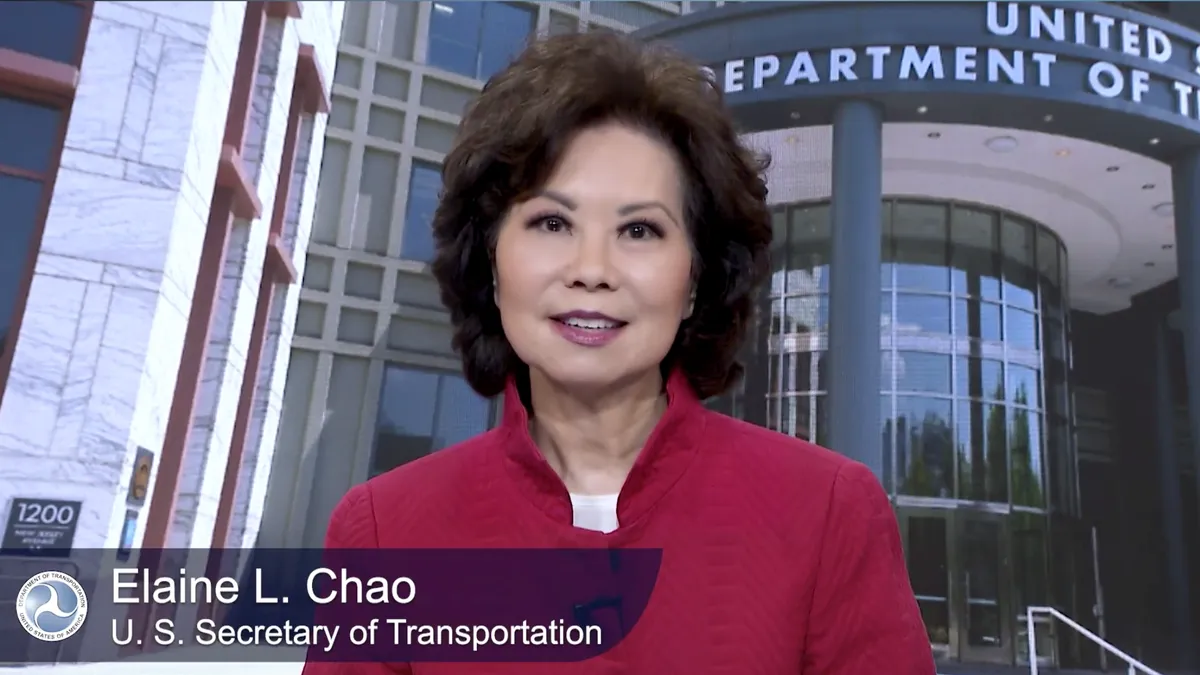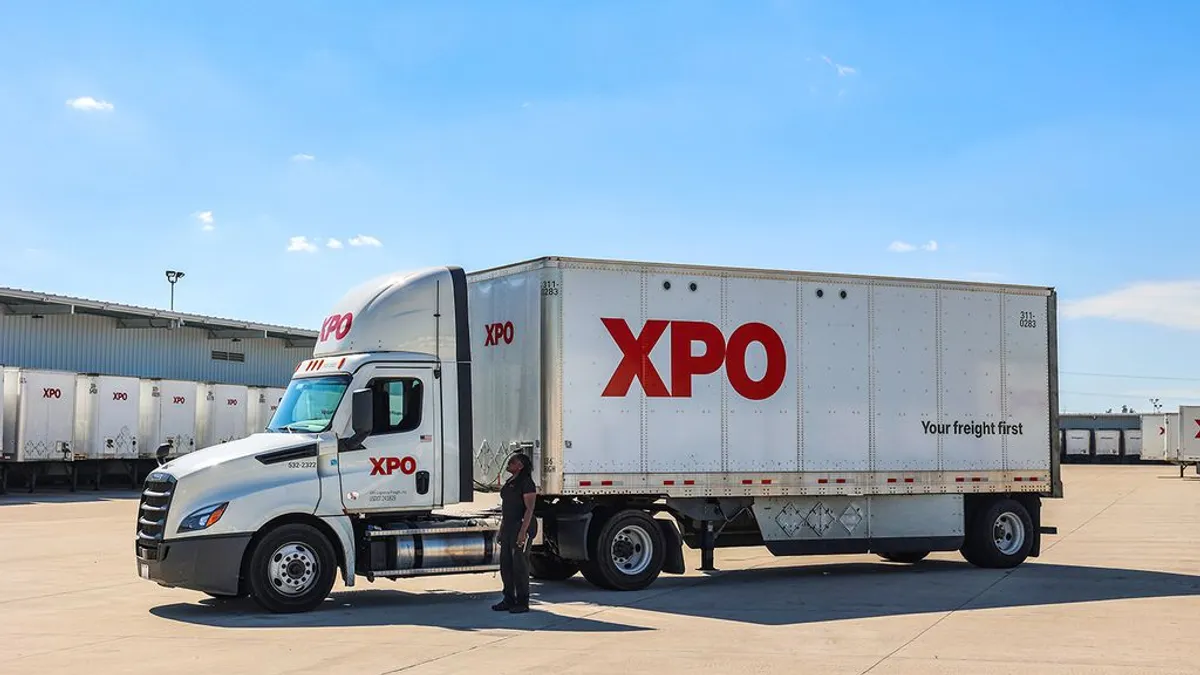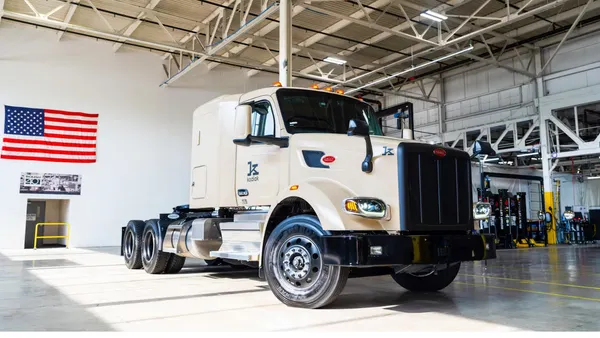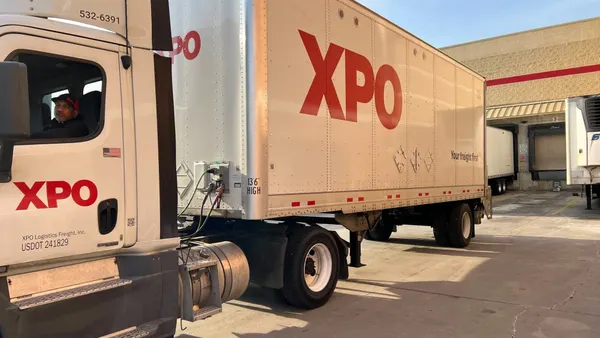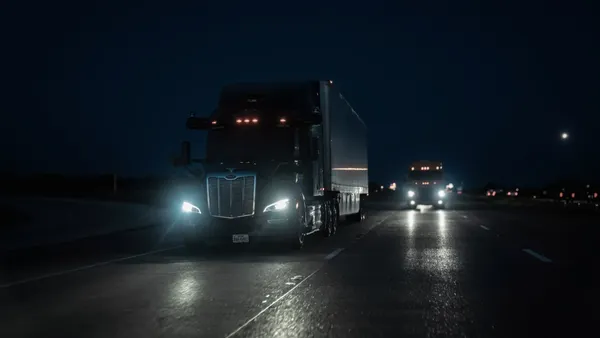Dive Brief:
- The National Highway Traffic Safety Administration (NHTSA) on Monday announced the launch of its Automated Vehicles Transparency and Engagement for Safe Testing (AV TEST) Initiative, which encourages stakeholders to voluntarily share data regarding the on-road testing and development of AV systems. This data will be displayed on a first-of-its-kind open data platform, accessible to the public.
- Nine companies and eight states were listed as initial stakeholders. Participation in the AV TEST Initiative is open to "all stakeholders involved in the development and testing of vehicles equipped with automated driving systems in the United States," said NHTSA Deputy Administrator James Owens in a kickoff call.
- Company participants are: Nuro, Waymo, Beep, Cruise, Local Motors, NAVYA, Toyota, Uber and Fiat Chrysler. State participants are: California, Florida, Maryland, Michigan, Ohio, Pennsylvania, Texas and Utah.
Dive Insight:
Initial participants in this initiative range from startups like Beep, to legacy OEMs or tech companies planning to spread their reach in advanced mobility, such as Toyota and Uber. Nuro and Waymo have recently delved into the delivery and Class 8 realms.
In September, Google-affiliated Waymo announced plans to expand its technology to Class 8 and last-mile delivery vehicles. Earlier, the company had piloted Class 8 trucks running freight to and from a Google data center in Atlanta, with driverless technology. In January, Waymo announced it would expand testing of its autonomous long-haul trucks to Texas and New Mexico, driving along major highways.
In April, the California Department of Motor Vehicles (DMV) issued Nuro a permit to operate two self-driving delivery vehicles on select streets in the Bay Area without a safety driver present. Nuro became the second company to get such a permit; Waymo was the first in November 2018. Final-mile delivery of freight is the least-efficient part of transport, but AVs could help speed goods to customers, keeping drivers on the road for longer trips.
Traditional truck manufacturers are beginning to show interest. Daimler Trucks last year acquired a majority stake in Torc Robotics, an autonomous vehicle software company, and shortly after announced plans to invest $556 million in an autonomous driving group to research the hardware and software required to operate autonomous trucks.
The U.S. Department of Transportation (USDOT) and NHTSA have pushed a number of efforts over the last five years to keep governments and automated driving companies collaborating and communicating about the advancement of AV systems. This has been done through the encouragement of voluntary self-assessments, development of coordinated councils and release of various guidelines. Most recently, U.S. Secretary of Transportation Elaine Chao unveiled AV 4.0 guidelines to unify efforts across 38 federal departments working to advance safe AV deployment.
AV TEST marks a first for NHTSA in regards to how this information, which has long been shared across industry, can be communicated to the public to dispel myths and misunderstandings about the future of autonomous driving.
"There has been no one-stop, centralized, nationwide source for information and transparency about the safe testing and development underway, until now," Owens said.
Beep CEO Joe Moye told Transport Dive sister publication Smart Cities Dive transparency is "critical." The NHTSA platform will allow companies to disseminate information much more broadly than before, while also serving as a tool that companies can use to keep tabs on AV developments across the U.S., he continued.
"We need to learn from each other across industry because we’ve all got different types of operations being tested out there," he said.
Despite optimism from USDOT, associated departments and involved stakeholders, not everyone is convinced the voluntary initiative will move the needle in creating safe autonomous vehicle systems. In a statement, Advocates for Highway and Auto Safety President Cathy Chase called NHTSA's reliance on voluntary participation "a recipe for disaster."
"The definition of insanity is repeating the same thing over and over and expecting a different result," Chase wrote. "Instead of the U.S. DOT continuing to issue voluntary, unenforceable agreements to the peril of all road users, it should fulfill its responsibility [to] make our roads safe and develop minimum performance standards. These baselines will protect the billions of dollars AV developers have invested, help foster public confidence and inspire innovation to exceed them."



